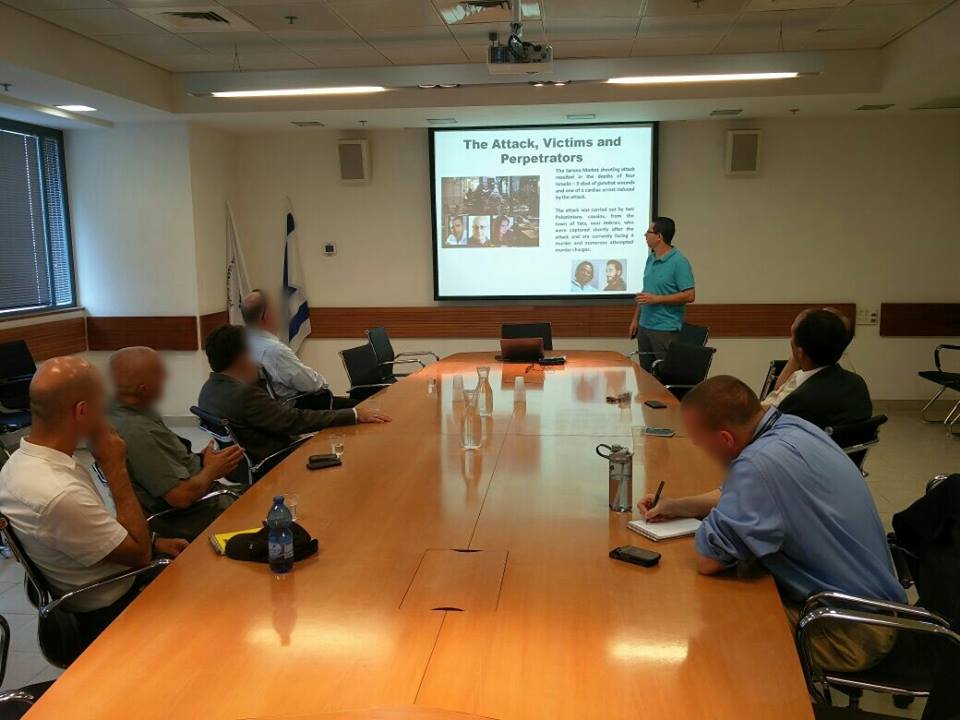Exporting Lawyers from Israel
Have you been to any security conferences lately? If so, have you come across any lawyers there? No?
Perhaps there should be lawyers at security conferences, after all, legal dilemmas offer the biggest challenges in the field of counter terrorism.
Israel is very well known for its military and security exports. This comes as no surprise as Israel has been facing security challenges since its formation, some seventy years ago, and has accumulated significant expertise and technological superiority in these fields.
It seems that everyone is seeking Israeli advice these days and the security consulting business is booming. Recent security threats in Europe brought many Israeli security experts to the European continent as did the Mumbai attacks to India in 2008 and prior to that, the 9/11 attacks to the U.S. in 2001.
But is this all Israel has to offer in this field?!
When faced with severe security challenges many nations take extreme steps: soldiers are deployed to the plazas and train stations, travel is restricted and parliaments enact emergency laws, all of which severely impact civil liberties. As Cicero of ancient Rome is quoted as saying: “Inter arma enim silent leg?s” or roughly translated to English “in times of war, the law falls silent”.
When this happens, terrorism wins. Ask any American and they will tell you that they doubt TSA screening is effective in preventing future hijackings but that these practices (not the threat of terrorism) have caused them to think twice before boarding a U.S. based flight.
But this has not been the case in Israel; in spite of periods of prevalent attacks on its civilian population, Israel has rarely had to put emergency laws to use, yet alone enact new such laws. Israel’s Supreme Court actively intervenes when the government or parliament overstep their authority and cross the fine line between security and human rights, government legal advisors keep their ministries in check and in spite of displeasure from rightwing cabinet members, NGOs actively voice their concerns and carry out protests against any change in the country’s human rights status quo.
This goes on not only within ‘green-line’ Israel but also in ‘occupied’ Judea and Samaria where military lawyers from the Judge Advocate General (JAG) unit assist IDF commanders in navigating the complex area of international humanitarian law and even in IDF operations in Gaza and Lebanon, where the IDF JAG International Law Department (known in the IDF by the acronym ‘DABLA’) set precedent in areas not yet touched upon by military law scholars and are, at times, criticized by other militaries who fear their conduct during conflict will be measured by these high IDF standards.
But Israel’s balanced legal approach is also a very pragmatic one. Israel maintains a very strict policy on the subject of possession of firearms, for example, but never the less, firearms permits are issued to civilians with security backgrounds as a first line of defense against terrorism. The same pragmatism applies to civilian security: some seventy thousand civilian security personnel handle security at Israel’s transportation hubs, government facilities, universities, banks and malls but unlike many other countries who refuse to provide private security officers with any legal authority, Israeli security personnel, who are almost entirely civilian contractors, possess the authority to search suspicious individuals, detain them and even use force and firearms in the process, if necessary.
Such a pragmatic approach, balanced with strict legal criteria allows Israel to maintain its democratic values while defending itself from those who wish to harm her.
Many would say that desperate times call for desperate measures but this is hardly the case for dealing with terrorism, as Israel has proven and with these remarkable results. Therefore, perhaps it is time that Israel export not only security experts but also lawyers with security expertise and not only cutting edge security technology but also balanced security policies and pragmatic laws and regulations.

